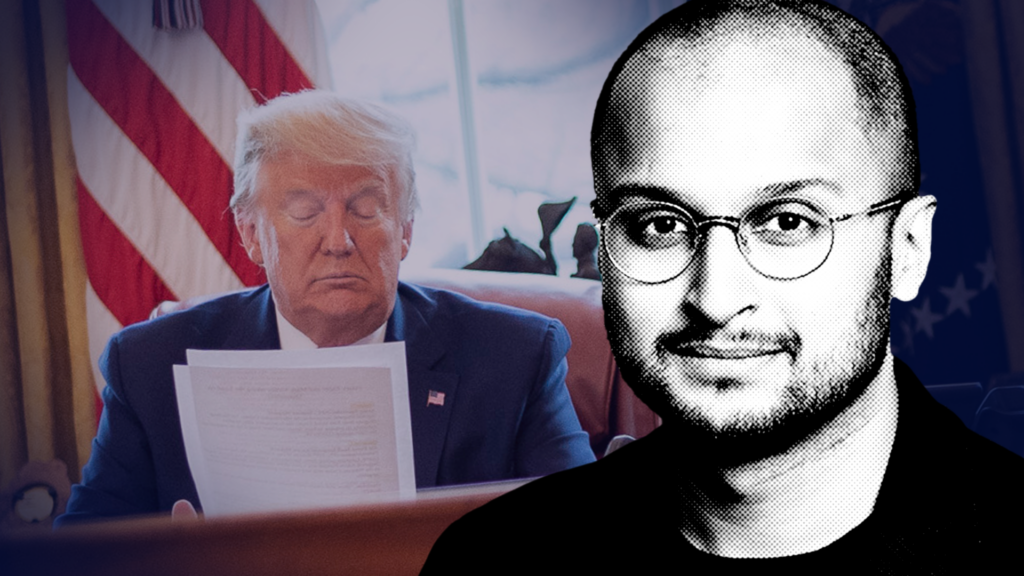Memo to Trump: Engage in an open-ended diplomatic process with North Korea
By Ankit Panda | January 17, 2025

Editor’s note: This is part of a package of memos to the president. To download a free PDF of this memo, click here.
Mr. President, North Korea remains a pressing challenge for the United States but also presents substantial opportunities for your new presidency. During your first term, you demonstrated that casting aside traditional caution and engaging the North Korean leader Kim Jong-un proactively, leader to leader, could yield novel results. During your second term, even though the geopolitical context has changed significantly, you should once again seek to initiate an open-ended diplomatic process with Kim.
Key strategic goals
The goals of such a diplomatic process should focus on the key challenges that North Korea poses to US national interests. These include the country’s substantial and growing stockpile of nuclear weapons, which the US intelligence community assesses are a cornerstone of the country’s national defense strategy and are unlikely to be bartered away, and Pyongyang’s persistent, illicit activities overseas to shore up its regime. The key principle guiding US policy should be to shape North Korea’s choices so US interests are meaningfully improved in Northeast Asia and around the world. You should further ensure that the two key US allies in Northeast Asia that also face severe threats from North Korea—South Korea and Japan—understand that such a diplomatic approach would enhance their own security.
Deterrence
Parallel to these efforts to engage North Korea, the United States should maintain sufficient military capability in Northeast Asia to ensure deterrence of a conventional war, which remains a risk and would be highly damaging to US strategic interests in Northeast Asia. As a matter of nuclear risk reduction, North Korea also understands that a conventional war represents the most likely antecedent to nuclear use. Accordingly, even if you seek to negotiate a more favorable burden-sharing arrangement with South Korea, US military personnel on the Korean Peninsula should remain forward-deployed, and the existing array of strategic assets that contribute to reassuring Seoul and deterring Pyongyang should be maintained. Given the potential costs of deterrence failure to the United States, the peacetime costs of this military presence continue to provide a positive balance to US interests.
Economic sanctions
Despite your willingness to boldly engage in unprecedented diplomacy during your first term, the second North Korea-United States summit in Hanoi, Vietnam, largely collapsed due to the unwillingness of some of your key national security advisors to contemplate the prospect of economic sanctions relief as an inducement for North Korea to offer up key parts of its nuclear arsenal. What the North Koreans asked for in Hanoi did not represent a proportionate exchange: Their starting offer amounted to an exchange of roughly 90 percent of multilateral economic sanctions for approximately 45 to 60 percent of the country’s total weapons-grade fissile material production capability at the time. That said, this framework—sanctions relief for verifiable nuclear concessions—will remain a potentially promising basis on which to frame new diplomatic overtures toward North Korea.
Kim remains traumatized by the outcome of the Hanoi summit and has repeatedly indicated that he has no interest in negotiating ever again with the United States. You should seek to call his bluff by proactively indicating—in private communications—that the United States will be open to the prospect of a truly open-ended negotiation, including about how to arrive at an understanding on trading multilateral sanctions relief for the right package of nuclear concessions. Such a deal would not be met with opposition from Russia and China at the UN Security Council, despite the divergence of interests that those countries and the United States have on other issues relating to the Korean Peninsula.
Other matters for consideration
Unlike during your first term, you should be prepared for new complications arising from North Korea’s substantially improved geopolitical standing today. North Korea is now in a full-scale strategic partnership with Russia. It remains in the US interest to limit the scope of Russia-North Korea engagement. Irreversible technology and knowledge transfer from Russia to North Korea could significantly accelerate Pyongyang’s ability to improve its national defense capabilities, which would further threaten US assets and key allies in the region. While the United States may not be able to offer North Korea inducements that will be more attractive than what Russia can offer, your administration officials should be willing to communicate to Kim that Russia will never allow him to achieve what remains a longstanding goal for his regime: economic growth (even idiosyncratically conceived according to North Korean preferences).
Separately, the United States should be prepared for North Korea to proactively seek a more substantial role in possible multilateral settlement talks over the ongoing Russia-Ukraine War. Pyongyang may identify itself as a formal co-belligerent in the conflict, now that its soldiers are fighting on Russian territory under a bilateral treaty that has been legally codified and entered into effect in both Russia and North Korea. Though it’s not clear at this point that North Korea will seek involvement in Ukraine settlement talks, broader US strategic objectives require that the United States and its partners prepare for the possibility that Pyongyang will become a factor in negotiations.
Together, we make the world safer.
The Bulletin elevates expert voices above the noise. But as an independent nonprofit organization, our operations depend on the support of readers like you. Help us continue to deliver quality journalism that holds leaders accountable. Your support of our work at any level is important. In return, we promise our coverage will be understandable, influential, vigilant, solution-oriented, and fair-minded. Together we can make a difference.
Keywords: Donald Trump, Kim Jong-un, North Korea, Trump administration, United States
Topics: Nuclear Weapons















